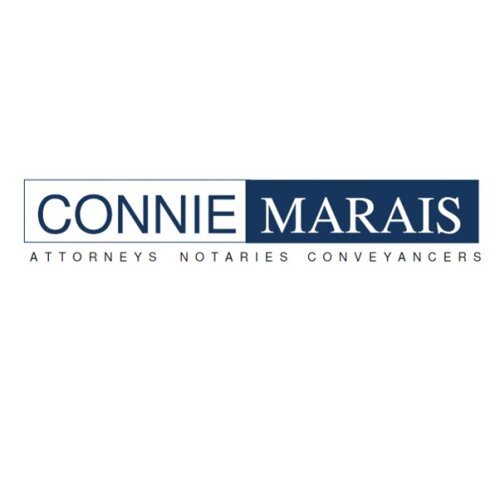Best Ethics and Professional Responsibility Lawyers in Richards Bay
Share your needs with us, get contacted by law firms.
Free. Takes 2 min.
List of the best lawyers in Richards Bay, South Africa
About Ethics and Professional Responsibility Law in Richards Bay, South Africa
Ethics and Professional Responsibility law focuses on the standards and conduct expected of individuals and organizations in professional settings. In Richards Bay, South Africa, these laws ensure that professionals-such as lawyers, doctors, accountants, engineers, and government officials-act with integrity, fairness, and accountability. These standards aim to protect the public, enhance trust in professions, and maintain the credibility of professional sectors. Regulations may originate from legislative acts, statutory codes, or guidelines established by professional governing bodies specific to South Africa and KwaZulu-Natal province.
Why You May Need a Lawyer
There are several situations where guidance from a lawyer specializing in ethics and professional responsibility may be necessary:
- Facing allegations of professional misconduct or ethical breaches
- Responding to disciplinary proceedings by a professional body
- Clarifying conflicts of interest or confidentiality issues at work
- Dissatisfaction with the ethical conduct of a professional who served you
- Reporting unethical behavior within your workplace or profession
- Need for advice on drafting and implementing workplace codes of ethics
- Concerns about whistleblower protection when exposing wrongdoing
- Compliance with anti-corruption, anti-bribery, or other regulatory standards
Such situations can significantly impact your career, reputation, business operations, or rights as a service recipient, so obtaining specialized legal advice is crucial.
Local Laws Overview
Several South African laws and provincial regulations governing ethics and professional responsibility apply in Richards Bay. Key aspects include:
- Legal Professions: The Legal Practice Act 28 of 2014 provides a legal framework for the regulation and discipline of legal practitioners, with oversight by the Legal Practice Council (LPC).
- Healthcare Professions: The Health Professions Council of South Africa (HPCSA) sets standards and handles complaints for medical professionals.
- Anti-Corruption: The Prevention and Combating of Corrupt Activities Act, 2004, and the Public Service Act regulate government employees and service providers regarding ethical behavior and anti-bribery measures.
- Company Directors: The Companies Act, 2008, includes provisions on director duties, independence, and the need to avoid conflicts of interest.
- General Professional Conduct: Many professions have specific codes of ethics and disciplinary procedures, locally applied through regional offices or chapters of national bodies.
- Provincial and Municipal Codes: KwaZulu-Natal and Richards Bay municipal codes further guide ethical conduct, especially for local public service officials.
Breaches may lead to disciplinary action, fines, loss of license, civil claims, or even criminal proceedings, depending on the severity and nature of the violation.
Frequently Asked Questions
What is considered professional misconduct in South Africa?
Professional misconduct refers to actions or omissions by a professional that violate the codes of conduct, ethics, laws, or regulations governing their profession. Examples include dishonesty, breach of confidentiality, negligence, conflict of interest, or abuse of power.
Who oversees complaints about professional misconduct in Richards Bay?
Oversight depends on your profession. For example, the Legal Practice Council addresses complaints against lawyers, while the HPCSA manages those for healthcare workers. Other professions have similar regulatory bodies.
Can I raise an anonymous complaint against a professional or employer?
Yes, many regulatory bodies allow anonymous complaints, but providing your details may assist with investigation and allow you to receive updates on progress. Protection for whistleblowers is also offered under specific circumstances.
What happens if I am found guilty of breaching professional codes?
Sanctions can include reprimands, fines, suspension, loss of license, and civil or criminal liability, depending on the breach. In severe cases, it might also result in disqualification from future professional practice.
How do I defend myself against allegations of ethical breaches?
Seek legal advice promptly. A lawyer will guide you through the disciplinary process, help gather evidence, represent you at hearings, and ensure your rights are protected.
What is a conflict of interest and why is it important?
A conflict of interest arises when a professional’s personal interests may compromise their duties to clients, employers, or the public. It is vital to disclose and manage these conflicts to maintain trust and legal compliance.
Are companies in Richards Bay required to have codes of ethics?
While not always legally mandated, many sectors require companies to implement and uphold codes of ethics as part of corporate governance and compliance with broader regulatory frameworks.
What are the consequences for companies that fail to uphold ethical standards?
Consequences can include regulatory fines, reputational damage, loss of contracts, civil liability, and even criminal prosecution in cases of serious misconduct like bribery or corruption.
Can employees be protected if they report unethical behavior?
Yes. The Protected Disclosures Act, 2000, provides some protection for whistleblowers who report illegal or unethical conduct in good faith, making it unlawful for employers to retaliate.
Where can I find more information on ethical standards for my profession?
Consult your profession’s regulatory body, which usually provides codes of practice, guidelines, and resources related to ethics and professional responsibility. Legal advice can also help clarify complex areas.
Additional Resources
For further support and information regarding Ethics and Professional Responsibility in Richards Bay, consider reaching out to:
- Legal Practice Council (KwaZulu-Natal Provincial Office): Oversees lawyer conduct and complaints
- Health Professions Council of South Africa (HPCSA): Regulates healthcare disciplines
- South African Institute of Chartered Accountants (SAICA): For ethical codes regarding accounting
- Department of Public Service and Administration: Guidance for government officials
- Richards Bay Municipality Legal Services: Local governance and public official ethical issues
- Public Protector South Africa: Investigates abuse of power or maladministration
- Ombudsman offices relevant to specific sectors or industries
Next Steps
If you need legal help regarding Ethics and Professional Responsibility in Richards Bay, take the following steps:
- Identify the core issue: Clarify if your concern relates to misconduct allegations, reporting unethical conduct, or needing compliance advice.
- Gather documentation: Collect all relevant evidence, correspondence, employment agreements, or policies.
- Contact the appropriate professional body: If unsure, a local lawyer can help direct your concerns to the right entity.
- Consult a qualified lawyer: Seek legal professionals with experience in ethics and professional responsibility within your sector or industry.
- Ask about investigation timelines and possible outcomes: Ensure you understand the process and what to expect.
- Keep confidential records: Maintain written records of all communications and proceedings for reference.
- Stay informed of your rights: Check updates from regulatory bodies and request clarity when unsure about procedures or potential repercussions.
Navigating ethical and professional responsibility issues can be complex. Early legal guidance can minimize risk and help ensure a fair and effective resolution.
Lawzana helps you find the best lawyers and law firms in Richards Bay through a curated and pre-screened list of qualified legal professionals. Our platform offers rankings and detailed profiles of attorneys and law firms, allowing you to compare based on practice areas, including Ethics and Professional Responsibility, experience, and client feedback.
Each profile includes a description of the firm's areas of practice, client reviews, team members and partners, year of establishment, spoken languages, office locations, contact information, social media presence, and any published articles or resources. Most firms on our platform speak English and are experienced in both local and international legal matters.
Get a quote from top-rated law firms in Richards Bay, South Africa — quickly, securely, and without unnecessary hassle.
Disclaimer:
The information provided on this page is for general informational purposes only and does not constitute legal advice. While we strive to ensure the accuracy and relevance of the content, legal information may change over time, and interpretations of the law can vary. You should always consult with a qualified legal professional for advice specific to your situation.
We disclaim all liability for actions taken or not taken based on the content of this page. If you believe any information is incorrect or outdated, please contact us, and we will review and update it where appropriate.









